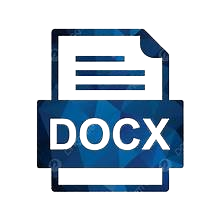LAW ENFORCEMENT AGAINST ELECTRONIC TRANSACTION CRIMES USING THE PHISHING METHOD (Decision of Study Number: 764/Pid.Sus/2022/PN Pbr)
Keywords:
Phishing, Electronic Transaction Crimes, Law EnforcementAbstract
Phishing is a rapidly evolving crime that threatens the security of electronic transactions in Indonesia. This act involves deceptive methods aimed at illegally obtaining personal and financial information, typically by exploiting fraudulent emails or websites. From a legal perspective, phishing has the potential to undermine public trust in digital systems. Its impact is not only felt by individual victims but can also affect social stability and the integrity of the legal system as a whole. This research aims to analyze law enforcement and the legal regulations governing phishing, including provisions in the KUHP and the Electronic Information and Transactions Law (UU ITE). By examining Case Decision Number 764/Pid.Sus/2022/PN Pbr, this study identifies various challenges faced by law enforcement in implementing existing regulations. The research employs a normative legal approach with descriptive analysis, aiming to identify issues and provide recommendations to enhance the effectiveness of law enforcement. The findings are expected to contribute new insights for improving the legal system in Indonesia and strengthening oversight mechanisms to prevent the recurrence of phishing incidents in the future.
Downloads
References
Arief, B. N. (2007). Masalah Penegakan Hukum dan Kebijakan Hukum Pidana dalam Penanggulangan Kejahatan. Jakarta: Kencana Prenada Media Group.
Bjcoid02. (2023, March). Serangan Phishing di Indonesia Terus Meningkat, Berikut Data Lengkapnya. Diambil kembali dari PT. Bank Jombang: https://bankjombang.co.id
Dikdik M. Arief Mansur, E. G. (2018, june 24). Rubrik Teknologi Informasi. Cyber Law, 88. Diambil kembali dari Majalah Tempo.
Friedman, L. M. (1975). The Legal System: A Social Science Perspective. New York: Russell Sage Foundation.
Irfan Fanasafa. Waspada Kejahatan Phishing Mengintai Anda. Kementerian Keuangan Republik Indonesia: https://www.djkn.kemenkeu.go.id/kpknl-purwakarta/baca-artikel/14851/Waspada-Kejahatan-Phishing-Mengintai-Anda.html diakses pada 18 Agustus 2024 pukul 20.00WIB
Marzuki, P. M. (2019). Penelitian Hukum Edisi Revisi, 35. PT. Kencana Prenada Media
Praditya Fauzi Rahman. Ada 34.622 Kasus Phishing di Indonesia Selama 5 Tahun Terakhir. detikjatim: HYPERLINK "https://www.detik.com/jatim/berita/d-6483650/ada-34-622-kasus-phishing-di-indonesia-selama-5-tahun-terakhir" https://www.detik.com/jatim/berita/d-6483650/ada-34-622-kasus-phishing-di-indonesia-selama-5-tahun-terakhir diakses pada 20 Agustus 2024 pukul 17.00WIB
Prasetyo, T. (2015). Hukum Pidana, Cet. VI. Jakarta: PT. Rajagrafindo Persada.
Rachmawati, D. (2019). Phising Sebagai Salah Satu Bentuk Ancaman dalam Dunia Cyber. Jurnal Saintkom 13, Nomor 3, 211.
Rahardjo, A. (2019). Cybercrime Pemahaman dan Upaya Pencegahan Kejahatan Berteknologi. Bandung: PT. Citra Aditya Bakti.
Santoso, T. d. (2001). Kriminologi. Jakarta: Rafa Grafindo Persada.
Suteki, & Taufani, G. (2018). Metodologi Penelitian Hukum (Filsafat, Teori dan Praktek). Rajawali Pers Depok, 175.
Syahrum, M. (2022). Pengantar Metodologi Penelitian Hukum: Kajian Penelitian Normatif, Empiris, Penulisan Proposal, Laporan Skripsi dan Tesis. . CV. Dotplus Publisher.
Downloads
Published
How to Cite
Issue
Section
License
Copyright (c) 2025 Mujahid Hamd

This work is licensed under a Creative Commons Attribution-ShareAlike 4.0 International License.
Authors who publish with this journal agree to the following terms:
- Authors retain copyright and grant the journal right of first publication with the work simultaneously licensed under Creative Commons Attribution 4.0 International License that allows others to share the work with an acknowledgment of the work's authorship and initial publication in this journal.
- Authors are able to enter into separate, additional contractual arrangements for the non-exclusive distribution of the journal's published version of the work (e.g., post it to an institutional repository or publish it in a book), with an acknowledgment of its initial publication in this journal.
- Authors are permitted and encouraged to post their work online (e.g., in institutional repositories or on their website) prior to and during the submission process, as it can lead to productive exchanges, as well as earlier and greater citation of published work (Refer to The Effect of Open Access).








